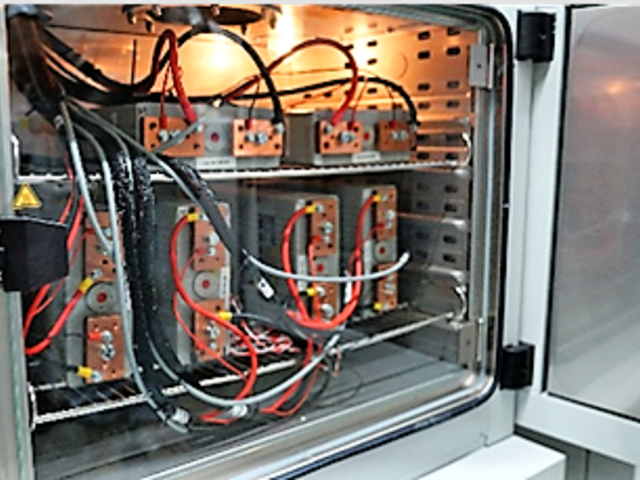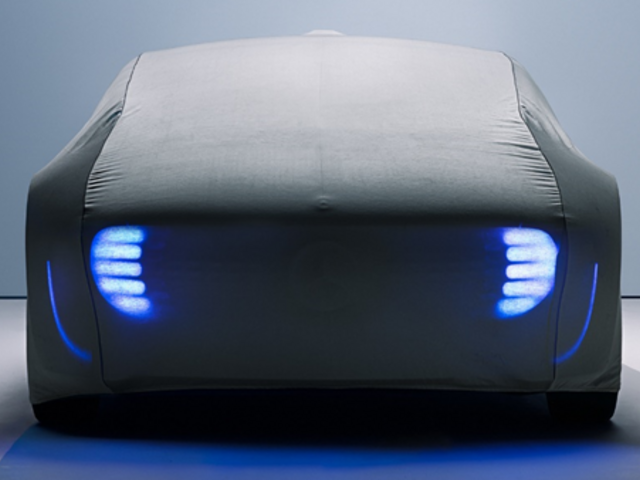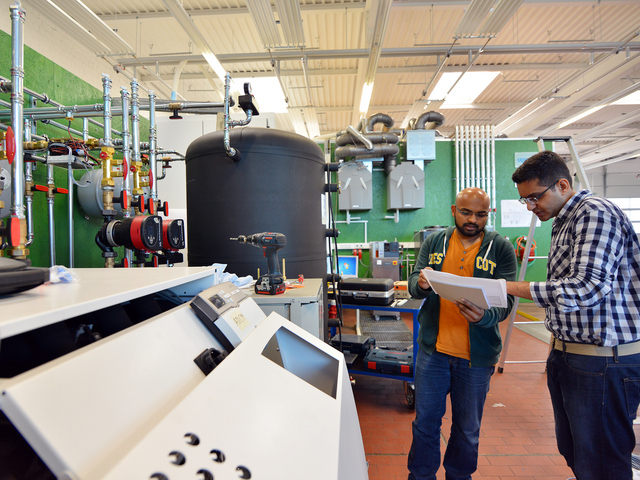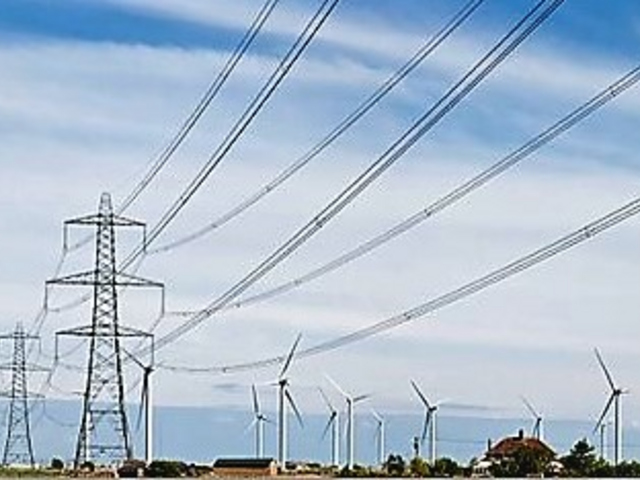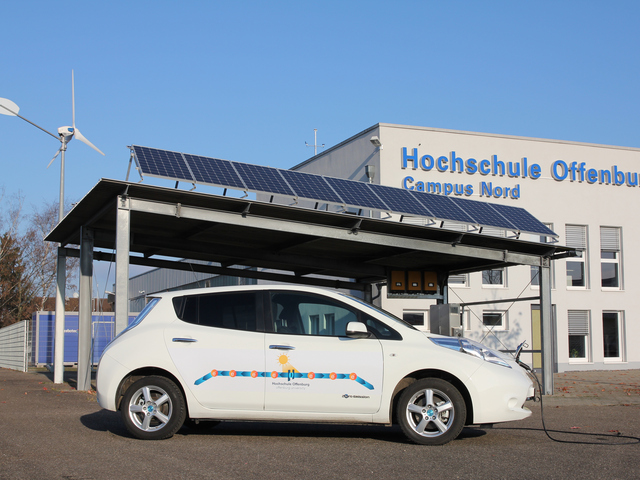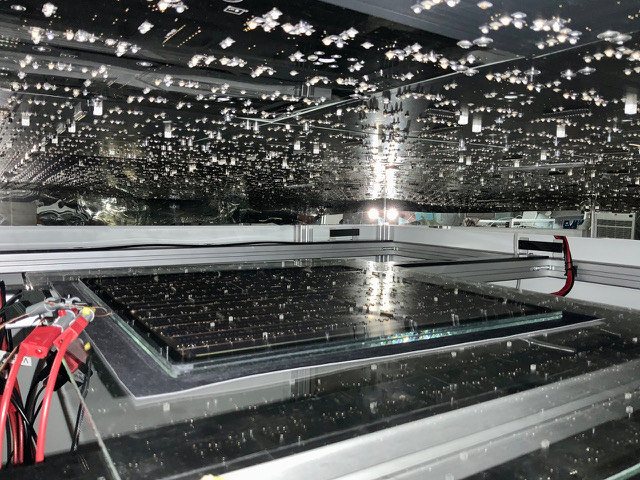Research at INES
Cooperations
There are numerous opportunities for companies to pursue research-and-development projects related to energy engineering: From the generation, storage and distribution of energy to its applications. Much of our work is based on experiments and the use of numerical methods, often complemented by field studies and monitoring campaigns on components or systems under operational conditions.
Direct R&D assignments are often advisable for product development with shorter project durations. They may include consulting, expert opinions and studies; metrological investigations for weak-point analysis and product characterization; and model-based and numerical evaluations for optimization potentials, among others.
Cooperation projects with additional companies and research institutes are suitable for multi-year, complex problems involving more extensive research and including, for example, lab measurements, field studies, monitoring campaigns, system development and complex numerical simulations.
Facilities
INES is located at the Research and Innovation Center of Energy Technology (RIZ Energie) on the main campus in Offenburg. In addition to an office tract, the building houses a 900-m² lab center, providing ample space for large-scale equipment, test benches and larger laboratory units for the research projects performed at the Institute.
Research Projects
| Title | Intelligenter Eigenverbrauch und Speicherung für eine bessere Nutzung von Energie |
| Short Name | INTERREG - ASIMUTE |
| Short Description | Autoconsommation et Stockage Intelligents pour une Meilleure UTilisation de I'Energie: In dem Projekt werden in den beiden Forschungsstellen zwei Themenfelder bearbeitet: 1) Am Institut INES werden dezentrale Regelungsmethoden für Energiesysteme untersucht und entwickelt, die mit einem geringen Modellierungs- und Implementationsaufwand auskommen sollen und auch nur geringe Kommunikationsanforderungen haben sollen. Dadurch soll die Robustheit, Interoperabilität und somit Praxistauglichkeit der Regelungsmethoden erhöht werden. 2) Am Institut ivESK werden Strategien zur Absicherung vor allem der Primärkommunikation untersucht, konzipiert und prototypisch umgesetzt. Dabei steht die Anbindung von so genannten Controllable Load Systems (CLS) über extrem schmalbandige Funkkanäle, wie sie insbesondere von Low-Power Wide Area-(LPWA)-Technologien bereit gestellt werden, im Zentrum der Untersuchungen. |
| Year Of Acquisition | 2023 |
| Start Date | 2023-10-01 |
| End Date | 2027-01-31 |
| Project Managers |
Schmidt, Michael, Prof. Dr.
Sikora, Axel, Prof. Dr. |
| Faculties | EMI |
| Institution |
INES
ivESK |
| Public Funders | EU (EFRE) |
| Title | Intelligenter Eigenverbrauch und Speicherung für eine bessere Nutzung von Energie |
| Short Name | INTERREG - ASIMUTE |
| Short Description | Autoconsommation et Stockage Intelligents pour une Meilleure UTilisation de I'Energie: In dem Projekt werden in den beiden Forschungsstellen zwei Themenfelder bearbeitet: 1) Am Institut INES werden dezentrale Regelungsmethoden für Energiesysteme untersucht und entwickelt, die mit einem geringen Modellierungs- und Implementationsaufwand auskommen sollen und auch nur geringe Kommunikationsanforderungen haben sollen. Dadurch soll die Robustheit, Interoperabilität und somit Praxistauglichkeit der Regelungsmethoden erhöht werden. 2) Am Institut ivESK werden Strategien zur Absicherung vor allem der Primärkommunikation untersucht, konzipiert und prototypisch umgesetzt. Dabei steht die Anbindung von so genannten Controllable Load Systems (CLS) über extrem schmalbandige Funkkanäle, wie sie insbesondere von Low-Power Wide Area-(LPWA)-Technologien bereit gestellt werden, im Zentrum der Untersuchungen. |
| Year Of Acquisition | 2023 |
| Start Date | 2023-10-01 |
| End Date | 2027-01-31 |
| Project Managers |
Schmidt, Michael, Prof. Dr.
Sikora, Axel, Prof. Dr. |
| Faculties | EMI |
| Institution |
INES
ivESK |
| Public Funders | EU (EFRE) |
Publications
Since the Institute's founding in 2012, all of its research groups have published prolifically. A full and searchable list of all INES authored publications is available on Hochschule Offenburg's OPUS publication server. Click here for access.
